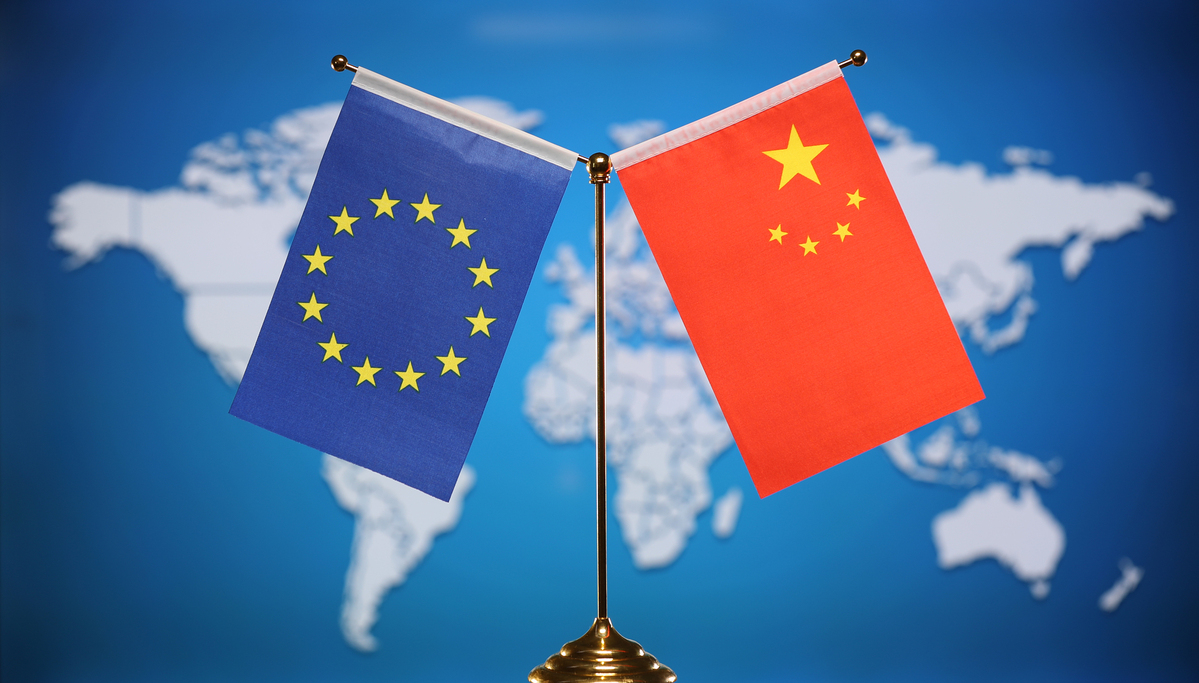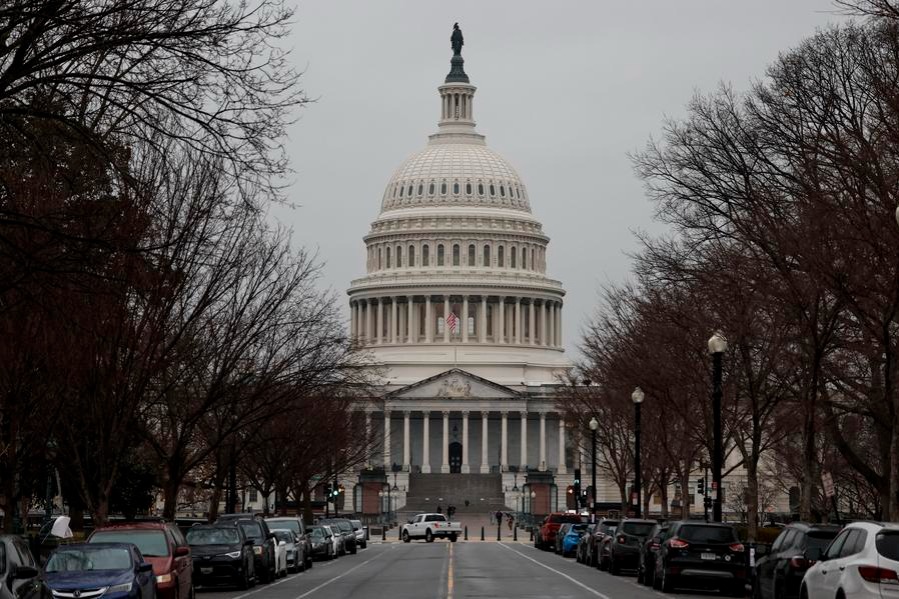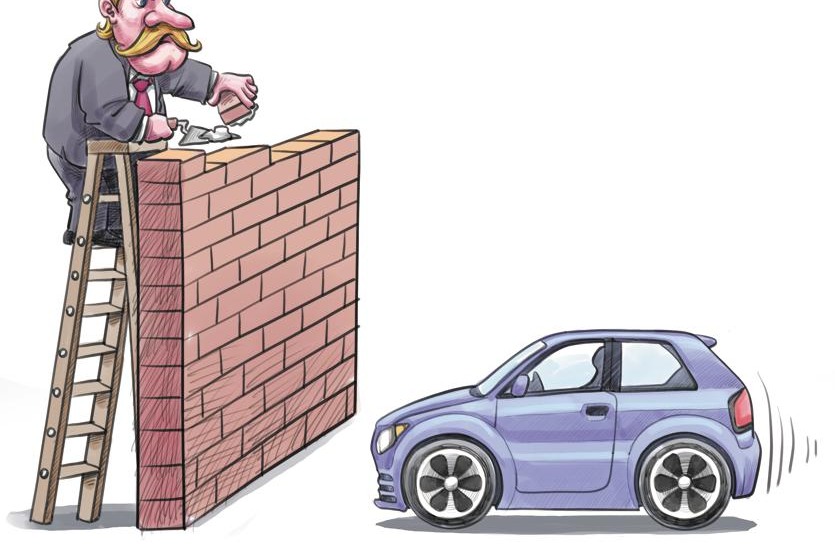Hong Kong has a part to play in China-EU investment pact


After years of negotiation, China and the European Union eventually managed to sign the Comprehensive Agreement on Investment shortly before the new year. For China, it is no doubt a firm step toward its aspiration of building a community with a shared future for mankind. Incidentally, the China-EU investment pact should also make it a little harder than otherwise for US President-Elect Joe Biden to form a new anti-China front with the United States' traditional allies. As for the EU, signing the CAI with China will help enhance internal unity and expand outward development, two crucial conditions for the EU to solidify its status as one of the poles in the multi-polar world in the first half of the 21st century.
Ever since the US adjusted its global strategy at the end of 2017 and early 2018, declaring China and Russia as its major rivals, the EU has adjusted its attitude toward China. A report issued by the European Council on March 12, 2019, referred to China as the EU's "systemic rival" for the first time. On Sept 25, 2020, Charles Michel, President of the European Council, stated in a speech to the United Nations General Assembly that the EU were "deeply connected with the United States", and that "we share ideals, values and a mutual affection that have been strengthened through the trials of history". He went on to express that the EU did not share the values on which the political and economic system in China was based. Nevertheless, he acknowledged that "China is a crucial partner in addressing common challenges, such as global warming, COVID-19 or debt relief in Africa", and that "China is also an important trade partner".
China promotes a stable relation with the EU by seeking common ground while reserving differences. On Jan 2, when Wang Yi, foreign minister of China, was jointly interviewed by Xinhua News Agency and China Central Television on such topics as the international situation and China’s diplomacy in 2020, he reiterated that China and the EU are strategic partners at all levels, rather than systemic rivals.
China-EU relations are expected to experience twists and turns in the intermediate to long run. As the EU "does not share the values on which the politico-economic system in China is based" while sharing "ideals, values and a mutual affection with the US that have been strengthened through the trials of history," that will hinder the expansion of its relations with China. Nevertheless, the CAI is in line with the common interests of the 27 EU member states and conducive to further opening up China and the fulfilment of its 2035 vision. It of course will also benefit the HKSAR.
First, Hong Kong residents should have realized by now whatever expectations they put on the US will end up hurting them badly and it is in their own good to abandon those illusions now. When it comes to Sino-US relations, Wang said in the interview, the relationship between the two countries "have come to a new intersection, and a new window of hope is opening", and it is hoped that "the next US administration will return to a sensible approach, resume dialogue with China, restore normalcy in bilateral relations and restart cooperation". Wang indicated that China’s policy toward the US was "consistent and stable", and that China is ready to "develop with the United States a relationship based on collaboration, cooperation and stability. China never meddles in the internal affairs of the United States and values peaceful co-existence and mutually beneficial cooperation with the United States. Likewise, the United States also needs to respect the social system and development path chosen by the Chinese people and respect their legitimate rights to pursue a better life". As for Sino-British relations, it will hinge on whether London will give up interference in Hong Kong affairs. However, it seems that, at least for now, the colonial legacy of the British Empire is too hard to erase.
Hong Kong should, therefore, capitalize on its existing ties with the EU to play a positive part in the CAI. That way Hong Kong will show it can contribute to national development while expanding its own development space.
Essentially, the future development of Hong Kong lies in the Guangdong-Hong Kong-Macao Greater Bay Area. This initiative is not in conflict with the effort to further expand Hong Kong’s international economic and trade ties. On the contrary, it is in line with the country’s effort to foster a new "dual circulation" development model with domestic circulation as the mainstay and domestic and international circulations boosting each other.
It is worth noting that the economic and trade ties between China and the EU are more in bilateral trade and less in mutual investment. China is the EU’s largest trading partner, and the EU is China’s second largest trading partner. In 2019, bilateral trade reached $705.1 billion in total value. However, in 2018, China’s investment in the EU was only $8.1 billion, accounting for merely 5.6 percent of China’s total overseas investment that year; the EU’s investment in China was only $10.4 billion, or 2.9 percent of the EU’s total external investment that year.
Hong Kong is a world-renowned free port. If China and the EU agree on forming a free-trade area together, there will be little room for Hong Kong to participate as a standalone economy, because it has long been shifting from goods to services, and has zero tariffs on most imported goods already. Now that China and the EU have reached an agreement that facilitates bilateral investment, it provides Hong Kong with abundant opportunities to cooperate or establish joint ventures with EU firms to invest in the Chinese mainland; or conversely, collaborate with mainland enterprises to invest in the EU. In the past two years, many from the local industries, finance and professional service sectors were insisting on the need to maintain Hong Kong’s international business prowess. The withering ties between Hong Kong and the US and/or the UK is a result of the shifting center of gravity of the global power balance rather than Hong Kong’s fault and therefore not up to anyone in Hong Kong to help or reverse. Hong Kong should take the opportunity to go with the flow by participating in the CAI. Assisting certain EU member states to clear the external interference that will hinder the endorsement of the CAI will be a good first step to take for sure.
The author is a senior research fellow of China Everbright Holdings.
The views do not necessarily reflect those of China Daily.

































